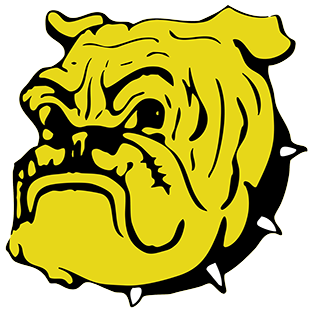Why the Bull Dog® Bailer Is a Field Favorite for Cleanouts in 2025
- Bull Dog Tool

- Sep 10, 2025
- 4 min read

In the oil and gas world, time is money — and when sand, scale, or debris are clogging your wellbore, you can’t afford to waste either. That’s why the Bull Dog® Bailer has remained a go-to tool for operators tackling cleanouts in low-pressure and non-circulating wells. Trusted for decades, refined through experience, and backed by patented design, this tool continues to set the standard for efficient downhole cleanout work.
If you’re still circulating or hauling in pump trucks for every sand problem, you’re probably spending more than you should. Here’s what makes the Bull Dog Bailer a favorite in 2025 — and why it should be in your string the next time you’re up against a plugged casing or debris-packed wellbore.
What Is the Bull Dog® Bailer?
The Bull Dog Bailer is a cleanout tool engineered to recover sand, scale, and other solids from the wellbore without loading the hole with fluid or requiring full circulation. It uses a reciprocating pump system to pull material into a tubing cavity while discharging fluid to the annulus — no pump truck required.
You can run the bailer on tubing or drill pipe, and pair it with a wide variety of bottom tools: bits, cutrite shoes, rotary shoes, or even fishing tools like overshots and on/off tools. This flexibility means it can be deployed in all kinds of downhole scenarios, from simple sand fill to frac ball recovery or bridge plug retrieval.
Bull Dog Bailer Sizes & Specifications
Bull Dog offers the Bailer in a range of sizes to match various casing IDs and job specs:
3.125” O.D. for 4 1/2” casing
3.75” O.D. for 5 1/2” casing
4.625” O.D. for 7” casing
Each size is engineered for high tensile strength and torque ratings, with displacements ranging from 0.22 to 11 gallons per stroke. This allows the tool to perform under pressure, even in tough or unpredictable hole conditions.
Why the Bull Dog Bailer Is the Go-To in 2025
1. No Circulation? No Problem.
Many wells today, especially in mature fields, don’t support a full fluid column. Trying to clean out those wells with traditional methods means either accepting formation damage or getting creative. The Bull Dog Bailer lets you recover solids without relying on fluid loading or continuous circulation, making it a field-proven choice for:
Depleted or low-pressure zones
Wells with water-sensitive formations
Cost-conscious cleanout operations
2. Field Flexibility & Tool Compatibility
The Bull Dog Bailer can be paired with different bottom-hole tools depending on your job. Whether you’re trying to mill a bridge plug, recover junk, or clean out caved open hole, it adapts to your operational needs without added equipment.
3. Trip Efficiency & Debris Recovery
You can clean out up to 300 feet of casing in a single trip under ideal conditions. With the right fluid level and pump action, recovery is fast and efficient. Field data suggests recovery of debris volumes up to 3/8 the fluid column height.
4. Expandable with the Bull Dog® Multiplier®
Need more stroke? Add the Multiplier. This patented add-on triples the effective pump stroke from 5 feet to 15, increasing lift capacity and reducing the number of trips required. It's a perfect add-on for deeper wells or heavier debris situations.
5. Made in the U.S.A. and Ready Fast
Every Bull Dog Bailer is machined to spec at our Houston-area machine shop, with industry-best lead times and customizations available. We cut to tight tolerance, pressure-test every unit, and ship fast so your crew isn’t waiting on parts.
What About the Adaptable® Tool?
For cleanouts where surface pressure is an issue, or when you need to mill, fish, or drill without circulating, Bull Dog also offers the Adaptable® Tool. It uses a plunger pump system and check valves to pull debris into a tailpipe with every stroke, giving you a clean, fluid-efficient operation with minimal risk of formation damage. The Adaptable Tool is especially effective in:
Water-sensitive formations
Post-frac or plug drill-outs
Combo operations (milling + fishing)
It complements the Bailer perfectly in situations where more flexibility or power is required.
Field Applications & Use Cases
Operators across Texas, New Mexico, and Oklahoma are using the Bull Dog Bailer in:
Frac sand recovery after stimulation jobs
Bridge plug and packer retrieval
Scale and paraffin removal
Junk fishing
Deepening or reworking caved open hole
If your well can't handle a pump truck or you want to avoid unnecessary rig time, the Bull Dog Bailer system is an efficient, trusted solution.
How to Plan a Successful Bailer Job
Bull Dog Tool offers technical guidance to help plan your cleanout job, including:
Fluid level and stroke charts
Tool selection based on casing size and debris type
Recommendations for drain subs and chamber design
We also work directly with service companies to ensure operators are trained and confident with the tool before the job starts.

Final Thoughts & Call to Action
The Bull Dog Bailer didn’t become a field favorite by accident — it earned that spot by delivering results. When circulation isn’t possible and formation protection matters, it’s the cleanout system crews trust to get the job done safely, efficiently, and without breaking the bank.
Looking to build your next cleanout string? Bull Dog Tool has the equipment, expertise, and turnaround time to make it happen.
Contact us today to spec your next bailer job or get a quote on a complete cleanout system.
.png)



Comments